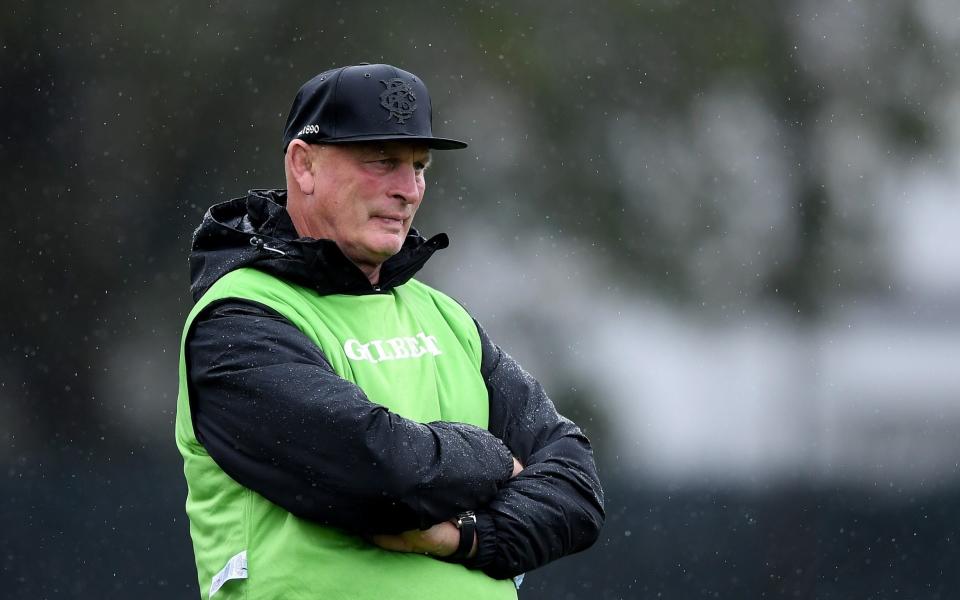Vern Cotter exclusive interview: How one coach journey fuelled Fiji's Covid-19 crisis

It was during the five-hour coach journey between Limoges and Saint-Etienne that Covid-19 spread rapidly through the Fiji squad, laying waste to their Autumn Nations Cup campaign.
Just three days earlier, the entire squad had returned negative tests, despite the Covid-safe challenges of their training camp, where players arrived in Limoges from various countries, coming and going depending on their club commitments and having to share a room when they arrived.
While the other teams entered secure bubbles three weeks before the tournament began, Vern Cotter, the Fiji head coach, describes those early days of his squad’s preparations at the start of last month as “a bit of an ambush”.
Several false positives had heightened their concerns, while some players were placed in isolation on arrival, including three from the Barbarians squad, whose match against England was called off when some team-mates left their biosecure bubble to socialise in London.
Switching hotels was hardly ideal either, yet Cotter had no idea of the crisis he was about to face when the squad arrived in a motel about 12 miles north of Saint-Etienne to begin intense preparations for their opening game against France.
“Right from the start, we felt it wasn’t an optimum preparation, but despite that, because we had those false positives, we managed to get everyone with a negative result on the Thursday before leaving Limoges,” Cotter says. “That was our green light. All protocols had been respected and then we had a five-hour bus trip from Limoges to Saint-Etienne on the Sunday.
“Everyone was very excited. It was the start of the Autumn Nations Cup. We went through training on Monday and the players were tested on Tuesday. We had one positive and we asked to be retested because we could not fathom how we could have had a positive because everyone had been negative.
“On the next test, on Wednesday, we had five positives and I managed to replace those players and we named a team to play France on Thursday. But the virus was spreading within the group.
“Looking back, the experts have told us the only plausible reason that it went through our team was that we either caught it from the bus that turned up to pick us up, or because the bus driver had to stop and we got off for a toilet break somewhere. We went from one case to five to 29 and had to go into shutdown.”
Fiji’s matches against France, Italy and Scotland had to be cancelled, resulting in 28-0 defeats for Cotter’s side, who could only watch the tournament unfold from the television screens on their own in their bedrooms in the motel as the entire squad were placed in self-isolation for two weeks.
Cotter admits his players faced physical and psychological challenges because of the lockdown. Some lost more than 10lb but perhaps the most severe effect was the mental strain.

“The first shock was psychological,” says Cotter, the former head coach of Scotland, Montpellier and Clermont Auvergne. “Being locked in your room and having food brought to you three times a day and not being able to do what you love. That would be hard for anybody but, culturally, it was really hard for the Fijians because they love being together.
“It was hard at the start. Players would open doors and talk to each other on hallways and hotel staff were trying to bring food to our rooms and we just had to say: ‘Boys, this is isolation.’
“A couple got bikes taken to their rooms and were able to do cardio work. Any player who was asymptomatic for 10 days could start to do an individual programme on their own, isolated, but anyone who had symptoms had 14 days and we waited for that to come together.”
That day of relief finally came on Monday. All the players had to undergo cardiac testing to ensure there were no ill effects of the virus – two players and two members of the coaching staff had suffered from symptoms – while a virologist from Paris had monitored the squad daily through the lockdown.
Having been cleared to play against Georgia at Murrayfield on Saturday, Cotter and his staff have had to draw up a tailored training week to take account of the deterioration in their physical condition. Cotter, however, insists that, despite a lack of match sharpness, the experience has brought a new sense of togetherness and maturity to his squad.
“It is a miracle that we are going to be back on the paddock,” says Cotter, who faces the prospect of another two weeks of hotel quarantine when he returns to New Zealand next week. He is due to be released at 3pm on Christmas Eve.
“We talk about things in life that bring people together, a shared experience, and this is one of them. The more difficult a shared experience becomes, the more poignant, and it brings together the group even stronger. I think this team has been through something not a lot of teams have been through and they can look each other in the eye and say: ‘We got through this and we backed each other.’ I wouldn’t like to be the person to tell them they couldn’t play this weekend.”
In an autumn that has been defined by a lack of entertaining rugby, there is an expectation that a Fiji side unleashed with bring a much-needed, if belated, dash of colour.
“We will try to play our rugby, find the spaces where we can express ourselves and try to create things, but I think just getting out there will be a cause of celebration,” says Cotter. “This is a team that likes to play with the ball, and we haven’t told them not to do that. We know our strengths and we want to get the ball to them.”

